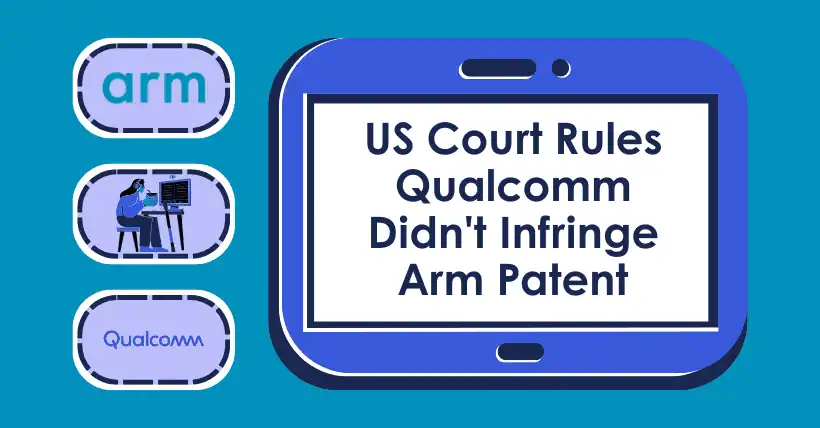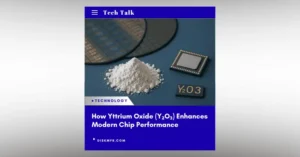Recently, the editor has shared a lot of content regarding the patent dispute between Qualcomm and Arm. This lawsuit is currently underway in the Nevada court of the United States.
The background of the patent dispute between Qualcomm and Arm is not complicated:
In 2021, Qualcomm spent $1.4 billion to acquire Nuvia and used some of Nuvia’s patented technologies to develop its own Snapdragon X-series processors.
Arm believes that some of these technologies originally came from patents licensed by Arm, and that Qualcomm’s acquisition of Nuvia did not legally transfer the licensing of these patents. If Qualcomm wants to continue using these patents for product development, it must obtain a new license and pay the licensing fees. Using them without such authorization is considered a serious infringement.
However, Qualcomm disagrees with Arm’s stance, emphasizing that the patents used in its Snapdragon X-series processors account for less than 1% of Arm’s patents and that the necessary patents have been properly licensed, with no infringement on Arm’s intellectual property.
Both sides have been very firm in their positions, and since negotiations failed, the case ended up in the Nevada court.
Typically, patent infringement lawsuits are difficult to resolve in a short period and often drag on for a long time. However, this case is an exception. The preliminary ruling has already been issued, and this is the main topic of this article.
In short, after three days of hearings, the eight-member jury could not reach a consensus on whether Qualcomm infringed on Arm’s patent ownership.
This ruling may seem ambiguous at first glance, but overall, it is favorable for Qualcomm. The court did not immediately adopt Arm’s claims of infringement, as Arm had hoped, and instead took a more reserved stance.
The jury’s position is essentially a rejection of Arm’s patent infringement claims, which is good news for Qualcomm and can be seen as a preliminary victory. However, this is not the final ruling, and the case will continue, with a future trial date yet to be determined.
After the preliminary ruling was announced, both Qualcomm and Arm issued responses. Qualcomm stated:
“We are satisfied with today’s ruling. (The ruling is essentially) the jury vindicating Qualcomm’s right to innovate and confirming that all disputed Qualcomm products in this case are protected by the contract between Qualcomm and Arm (and do not infringe any patents).”
Arm expressed strong dissatisfaction with the ruling, with a spokesperson responding as follows:
“We are disappointed that the jury could not reach a consensus on these allegations (of Qualcomm infringing on patents). Since the jury was deadlocked, we plan to seek a retrial.
From the beginning, our priority has been to protect Arm’s intellectual property and the unmatched ecosystem we’ve built over the past 30 years with our valuable partners.” The full response can be seen in the image above.
In summary, the jury’s current overall stance tends to support Qualcomm and does not recognize Arm’s patent infringement claims, which is favorable for Qualcomm. Furthermore, this outcome benefits not only Qualcomm but also the entire industry and consumers at large.
Some readers may not understand why the editor says this, but the reason is simple: at present, Qualcomm is not the only company intending to develop PC processors based on Arm architecture. Other companies like MediaTek, Nvidia, and even AMD have recently expressed similar intentions.
If Qualcomm’s use of custom Arm architecture to develop its Snapdragon X-series processors is deemed an infringement, it will have a significant negative impact on all other players. They would either need to find ways to bypass Arm’s relevant patents or pay high patent licensing fees, and ultimately, these costs would be passed on to consumers, which would hinder industry innovation.
Therefore, the outcome of this lawsuit is extremely important, as it will have a profound impact on the future industry landscape and is worth paying close attention to. Arm has strongly opposed the preliminary ruling and stated that it will appeal, so the final decision remains uncertain and cannot be predicted at this point.
The editor will share more related updates and revelations as soon as possible, so stay tuned.

Disclaimer:
- This channel does not make any representations or warranties regarding the availability, accuracy, timeliness, effectiveness, or completeness of any information posted. It hereby disclaims any liability or consequences arising from the use of the information.
- This channel is non-commercial and non-profit. The re-posted content does not signify endorsement of its views or responsibility for its authenticity. It does not intend to constitute any other guidance. This channel is not liable for any inaccuracies or errors in the re-posted or published information, directly or indirectly.
- Some data, materials, text, images, etc., used in this channel are sourced from the internet, and all reposts are duly credited to their sources. If you discover any work that infringes on your intellectual property rights or personal legal interests, please contact us, and we will promptly modify or remove it.








